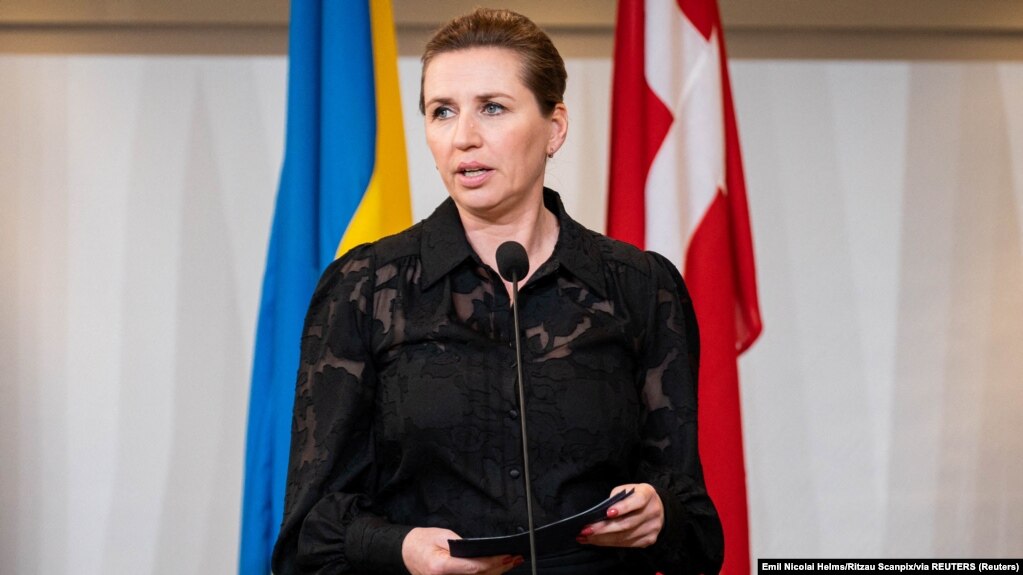
Danish Satellite to Ukraine
Denmark’s Ministry of Defense announced it would provide Ukraine with advanced satellite communications systems to support defenses. This strategic decision, in collaboration with the European Defence Agency (EDA), demonstrates Denmark’s unshaken dedication to space-based defense solutions.
Troels Lund Poulsen stated satellite technology now plays a crucial role in strengthening Europe’s security at national and regional levels. Consequently, as the conflict with Russia evolves, it increasingly becomes a complex, multi-domain war. Therefore, Denmark’s satellite donation notably boosts Ukraine’s overall strength and operational effectiveness.
Satellite terminals make it safe for the military to connect to the internet.
The most recent donation from Denmark includes encrypted satellite receiver terminals that will help Ukraine have strong and safe ways to communicate. These systems keep connections going in high-risk areas, where Russian cyber and electronic warfare attacks often target traditional land-based infrastructure.

These satellite terminals are vital for Ukraine, which struggles to maintain communications in combat zones with frequent disruptions and threats.
Denmark’s support improves Ukraine’s ability to coordinate complex operations by ensuring more reliable command and control across a dynamic battlefield.
Ukraine’s technology is no longer dependent on U.S. intelligence.
Moreover, Denmark’s decision comes amid rising uncertainty in U.S. foreign policy. Specifically, this is evident during President Donald Trump’s unpredictable second presidential term. Earlier this year, the United States abruptly halted military aid and intelligence sharing. As a result, the shutdown created a serious gap in Ukraine’s defences. As a direct consequence, Ukraine lost access to satellite imagery, signals intelligence, and targeting data for precision weapons like HIMARS missile systems.
Subsequently, this intelligence blackout left Ukraine increasingly vulnerable—particularly in Kursk, where Russian forces intensified assaults amid diminished Ukrainian situational awareness.
Furthermore, the lack of critical targeting information forced Ukrainian troops to ration ammunition and, in turn, rely on outdated alternatives. Denmark’s decision to offer independent satellite services fills this gap. It makes Ukraine less dependent on American strategic assets and keeps the battlefield visible.
The European Defence Agency backs strategic independence.
Denmark’s donation of a satellite is part of a larger European effort to rely less on American defense infrastructure. The European Defence Agency helped make this happen. The EDA has stated that other EU member states may soon follow suit; therefore, the donation could indicate a broader shift toward more independent European defense capabilities.
Furthermore, this development positions Europe as a more influential player in shaping the outcome of the war in Ukraine. It directly challenges Washington’s dominance in providing critical support—especially as the Trump administration continues to pressure Kyiv into making geopolitical concessions, including resource-sharing agreements.
Satellites give Ukrainian troops real-time information.
Space-based assets have benefits that networks on the ground can’t match. Satellite images and signals intelligence play a crucial role in monitoring Russian movements, mapping supply routes, and pinpointing targets, even in areas beyond the reach of ground-based sensors.
Orbital systems are strong enough to keep Ukrainian communications safe from physical damage and jamming, which are two of the main ways Russia uses electronic warfare. These capabilities give Ukrainian commanders the power to run decentralised operations and quickly adapt to changing conditions on the battlefield.
Moreover, Denmark’s strategic donation is not merely a technical contribution. Instead, it indicates a major change in international relations. Copenhagen has changed the balance of power in Western aid to Kyiv by providing satellite support without help from Washington. This action also makes it harder for the Trump administration to use important support for political gain.
The initiative shows that Europe is becoming more worried about how reliable Washington is and wants to have more say in security matters on the continent. Notably, Denmark has promised to spend more than 3% of its GDP on defense in 2025. This gesture shows that smaller NATO countries can have a big impact by making focused, high-impact contributions.

Europe Becomes an Important Player in Space Defence
The EDA’s call for more EU nations signals growing unity within Europe’s evolving and increasingly independent military support framework. Denmark’s satellite donation reflects broader European efforts to prepare for possible U.S. withdrawal or unreliable support in future crises.
As space emerges as a battlefield, controlling orbital systems grows increasingly essential for achieving success in modern, technology-driven conflicts. Ukraine’s sustained high-tempo operations without full U.S. support demonstrate the effectiveness and strategic value of advanced space-based defense technologies.
Result: Denmark’s satellite aid sets a new standard.
Importantly, Denmark’s help through satellite receiver terminals goes beyond supporting Ukraine’s immediate battlefield needs. It also strengthens Ukraine’s long-term communication capabilities in a number of areas. Furthermore, it enhances operational resilience in both defensive and offensive missions.
It sets a new standard for European military aid, expands operational freedom, and highlights space’s growing role in global conflicts. As Ukraine’s war grows more technologically complex, Europe’s support now exceeds financial aid and arms, advancing into strategic technological domains. Through critical high-tech donations like satellite infrastructure, Denmark and other nations reshape the battlefield and influence the broader geopolitical landscape.
References
- European Defence Agency—eda.europa.eu
- Danish Ministry of Defence—fmn.dk
- Defense News Today—defensenewstoday.info
- Reuters—reuters.com







